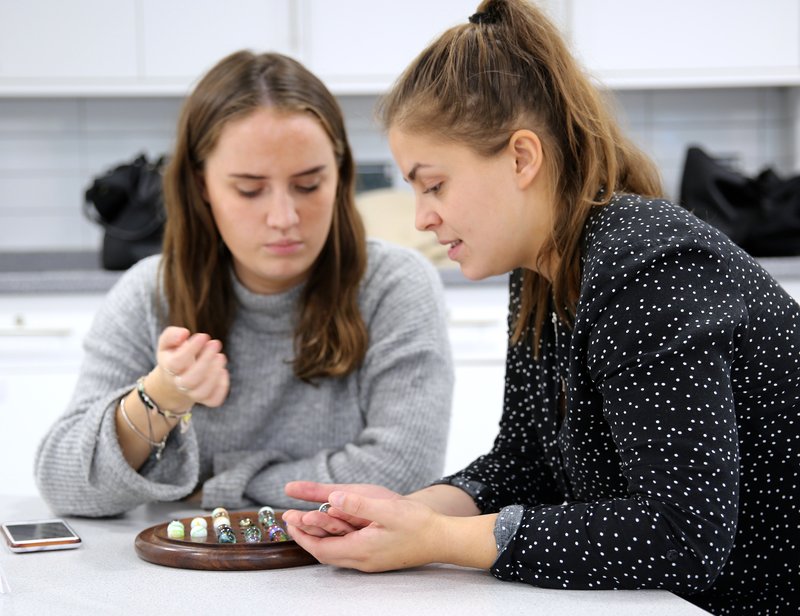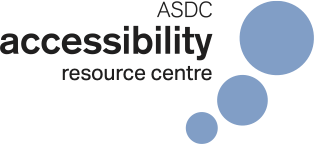Science Oxford: Picking teacher’s brains

Teacher Tasters
The Science Oxford Centre (SOC) – facilities, spaces and content – was created with accessibility in mind (e.g. wheelchair accessibility, flexible spaces, choice and design of exhibits). We also made an early decision to offer weekly free Teacher Taster sessions for schools, specifically so they could visit the site and discuss their pupils’ needs with us in advance. In this way we hoped to be able to tailor and improve the full visit experience by working closely with local Special Schools and the wide range of SEN that they cater for.
After a few enquiries from Special Schools, it was clear that the hands-on exhibits in the Exploration Zone was a big reason they wanted to visit, but also that each school had their own requirements, to ensure a safe and enjoyable visit for everyone whilst on site. Therefore, we started to work more closely with these schools, to create more bespoke visit days that could appropriately fulfil their needs whilst also providing us with learning opportunities.
As well as the commitment to running regular Teacher Taster sessions we also committed to responding to the feedback given by Special schools at these sessions so that we could create a more bespoke offer for them. Areas where we have adapted to their needs include:
• Changing the layout of our spaces and exhibits - e.g. provision of a quiet “breakout” space, removal of some exhibits, provision of indoor eating space as well as the usual outdoor covered area
• Changing the exit/entry arrangements
• Changing the content and pedagogy of our education sessions programmes (workshops, shows) – e.g. provision of more equipment so it was possible for pupils to work individually, minimising whole group discussion, provision of kit in trays for wheelchair users, provision of 3D-printed braille instructions, increased use of verbal/visual forms of instruction, increased use of tactile and open-ended activity, provision of new content etc.
We always begin with a Teacher Taster session if possible. This allows us to have a full walk-through of the site with the teacher(s) and to identify any adjustments that would benefit or support their pupils.
For this specific case, we worked closely with School ‘B’ to create a day that suited a wide range of ages and SEN. School ‘B’ had previously visited and enjoyed a trip with one primary school class, however their second visit involved two primary groups and one secondary group on the same day.
At the Teacher Taster session, we discussed the range of SEN in their classes and how best to cater for their pupils throughout the day. Their secondary teacher specifically expressed an interest in engaging their pupils in STEM Careers whilst visiting the SOC. During their trip, we supported this by organising a small carousel of activities that would form prompts for conversations about careers whilst also providing a chance to use scientific equipment. This included extracting DNA from strawberries and a tactile taxidermy table. As part of this visit, we also used some in-house 3D-printed braille, which we tested and used with one of their blind pupils. Adjustments were also made to the general orientation of the day, including introduction of all staff at the start of the day before being taken to their activities and division of the classroom to provide a quiet break-out space with calming activities.
Finding Funds
No extra cost or funding was required from the schools or provided by external partners. Accessibility is part of our Education and Engagement Strategy and so we considered this as part of the visiting experience for these schools and something that we could learn from and use to guide future visits as part of our organisational practice of critical reflection. In addition to this, we have been fortunate to work with a local funder, who is keen to support visits from schools with the highest percentage of free school meals in Oxfordshire and Buckinghamshire. There is a strong correlation here with Special schools and SEN provisions, so we are hoping to continue using these funds to reduce financial barriers for booking visits.
Breaking Barriers
Sometimes it can be difficult for teachers to have the time to visit the SOC and/or to fully discuss the needs of their class ahead of booking. In these instances, we still try to communicate via phone/email as much as we can, whilst also offering the chance for teachers to visit for free during public open days instead. As a small science centre, it can also be a challenge to accommodate all classes in separate locations whilst also having a quiet break-out zone and space to comfortably eat lunch during the winter months. We are hoping to secure funding to weatherproof our outdoor lunch area, but in the meantime, we are utilising other rooms adjoining the SOC to cater for these needs. We have also had feedback about further improvements that could be made, however we are limited by the cost burden of implementing these immediately. For example, we have been recommended to use larger, alternative pieces of equipment for certain workshops, to improve access for students with reduced mobility and dexterity, however we have yet to obtain the appropriate funds for sourcing and purchasing these items.
Access for All
As Special Schools cater for pupils with diverse SEN, we have found that it is best to utilise the expertise of the teachers to create a suitable and enjoyable experience for their pupils – after all, they know them best! Whilst liaising with teachers can sometimes take a little more time to prepare for a visit, it means that we can create an environment that is safe, familiar and accessible for everyone involved, and ultimately that helps us to achieve our mission more effectively.
It’s a Journey
A key future change would be building on this experience to create specific publicity and communication for Special Schools, detailing how we are able to work closely with them and can offer adaptations to support access during their visit to the Centre. We would also like to implement some of the recommendations that we have not been able to action yet (e.g. larger equipment pieces). Further to this, we are also hoping to work closely with a community group who support families with visual impairment, to organise some accessible visits and to produce more resources for their young people. We would like to run regular sessions for families with neurodivergent needs, but we’d like to liaise with local community groups to do this effectively.
